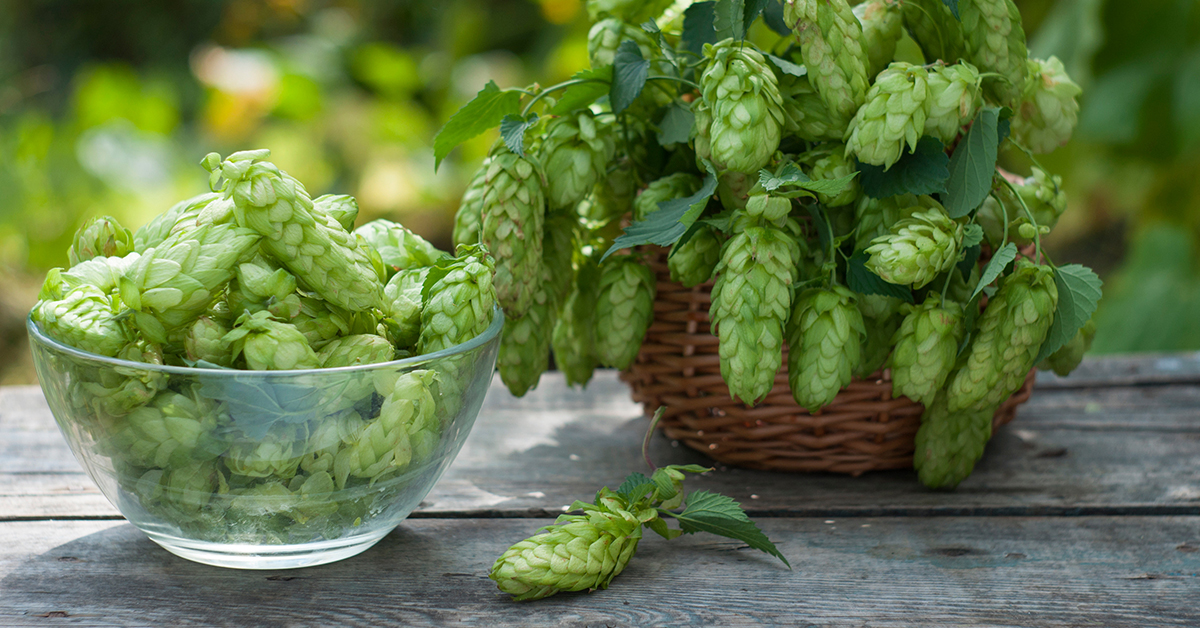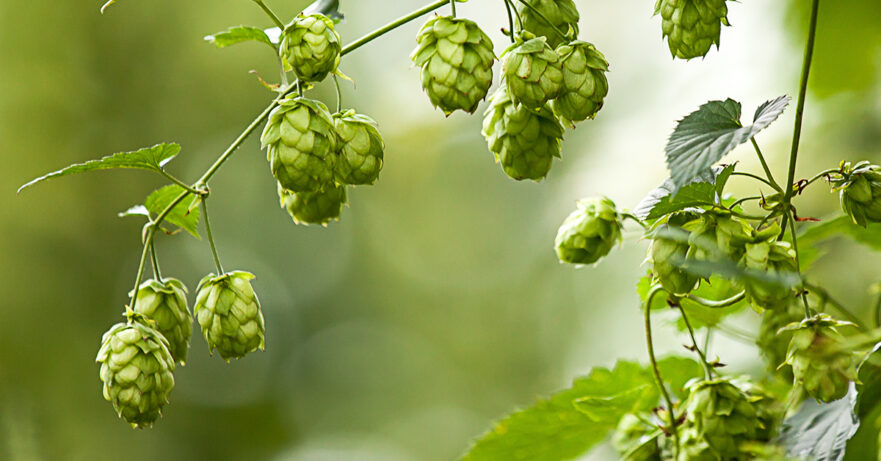In this monograph about hops:
📖 Introduction | 🌱 Botanical Description | 📜 Traditional Uses | 🔍 Phytochemistry | ✨ Applications and Uses | 🛡️ Safety Profile
📖 Introduction
Hops (Humulus lupulus) are recognized not only for their crucial role in brewing beer but also for their valuable therapeutic properties in herbal medicine. This perennial plant has been utilized for centuries for its soothing and calming effects, making it a key herb in natural remedies for sleep disorders and anxiety.
| English Name | Hops |
| Latin Name | Humulus lupulus |
| Parts Used | Flowers (Cones) |
| Traditional Uses | Alleviating anxiety, promoting sleep, and sedative effects |
| Herbal Actions | Sedative, antibacterial, antispasmodic |
🌱 Botanical Description
Scientific Classification
Humulus lupulus belongs to the Cannabaceae family.
Physical Characteristics
Hops feature distinct cone-like flowers (known as hop cones) that are green and papery. These plants are dioecious, having separate male and female plants, with the female plants producing the hops used in brewing and herbal medicine.
Natural Habitat and Cultivation Details
Native to Europe, Western Asia, and North America hops thrive in temperate climates. They grow well in rich soil with good drainage and require vertical space to climb, typically using trellises.
📜 Traditional Uses
Traditionally, hops have been used for their sedative effects to promote relaxation and improve sleep quality. They have also been employed to ease digestive issues and as a bitter tonic to stimulate appetite. In folklore, hops were believed to ward off insomnia and bring about peaceful sleep.

🔍 Phytochemistry (Active Constituents)
The medicinal benefits of hops are attributed to their complex phytochemical composition, including:
- Alpha acids (Humulones): Known for their bitter flavor and preservative properties in beer, they are also thought to contribute to the sedative properties of hops.
- Beta acids (Lupulones): Contribute to the hops’ antibacterial properties and are believed to play a role in their sedative action.
- Essential oils: Provide the characteristic aroma of hops and contribute to their calming effects.
- Flavonoids: Including xanthohumol, which is recognized for its antioxidant properties and has been the subject of research for its potential health-promoting properties.
✨ Applications and Uses
In herbal medicine, hops are used for:
- Sleep support: The soothing properties of hops are harnessed to aid sleep, particularly in herbal blends with other calming herbs like valerian.
- Anxiety reduction: Hops are employed to help alleviate anxiety and induce relaxation without the use of pharmaceutical sedatives.
- Digestive health: The bitter compounds in hops stimulate digestive juices, aiding digestion and appetite stimulation.
The application of hops in these areas is supported by traditional use and ongoing research, particularly focusing on their phytochemical content.
🛡️ Safety Profile
Hops are generally considered safe for most adults when used in moderation, though individuals with a history of allergies to hops or related plants should proceed with caution.
However, due to their sedative effects, caution is advised when using hops in conjunction with other sedative medications.
Pregnant and breastfeeding women are advised to avoid hops due to insufficient research on their safety in these populations. Individuals with depression should use hops cautiously, as it may exacerbate symptoms in some cases.
As with all herbs, consulting with a healthcare provider before using hops, especially for therapeutic purposes, is recommended to ensure safety and appropriateness.
📃 Related Posts
🌱 Related Herbs

